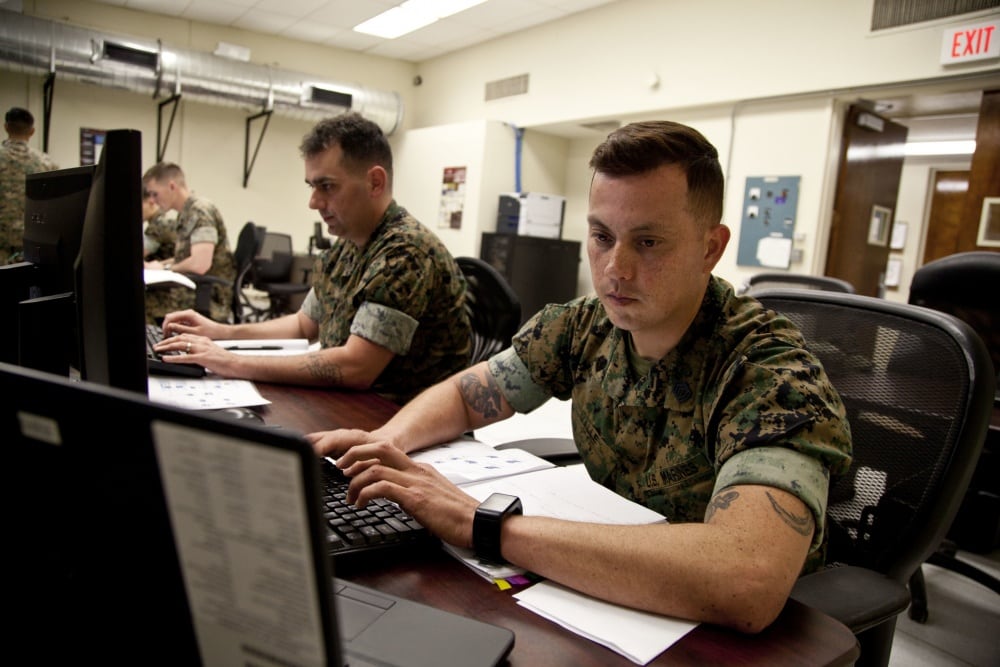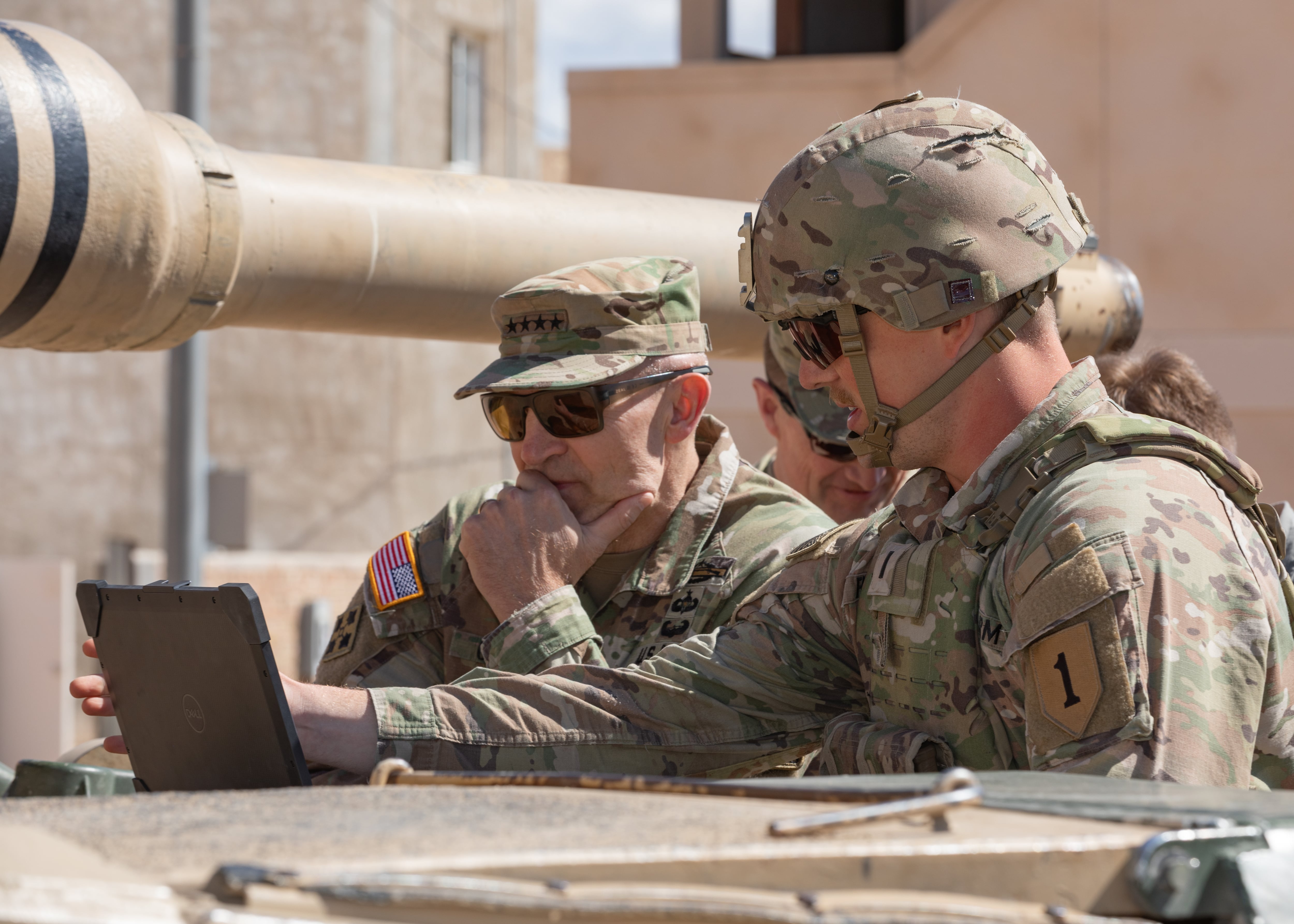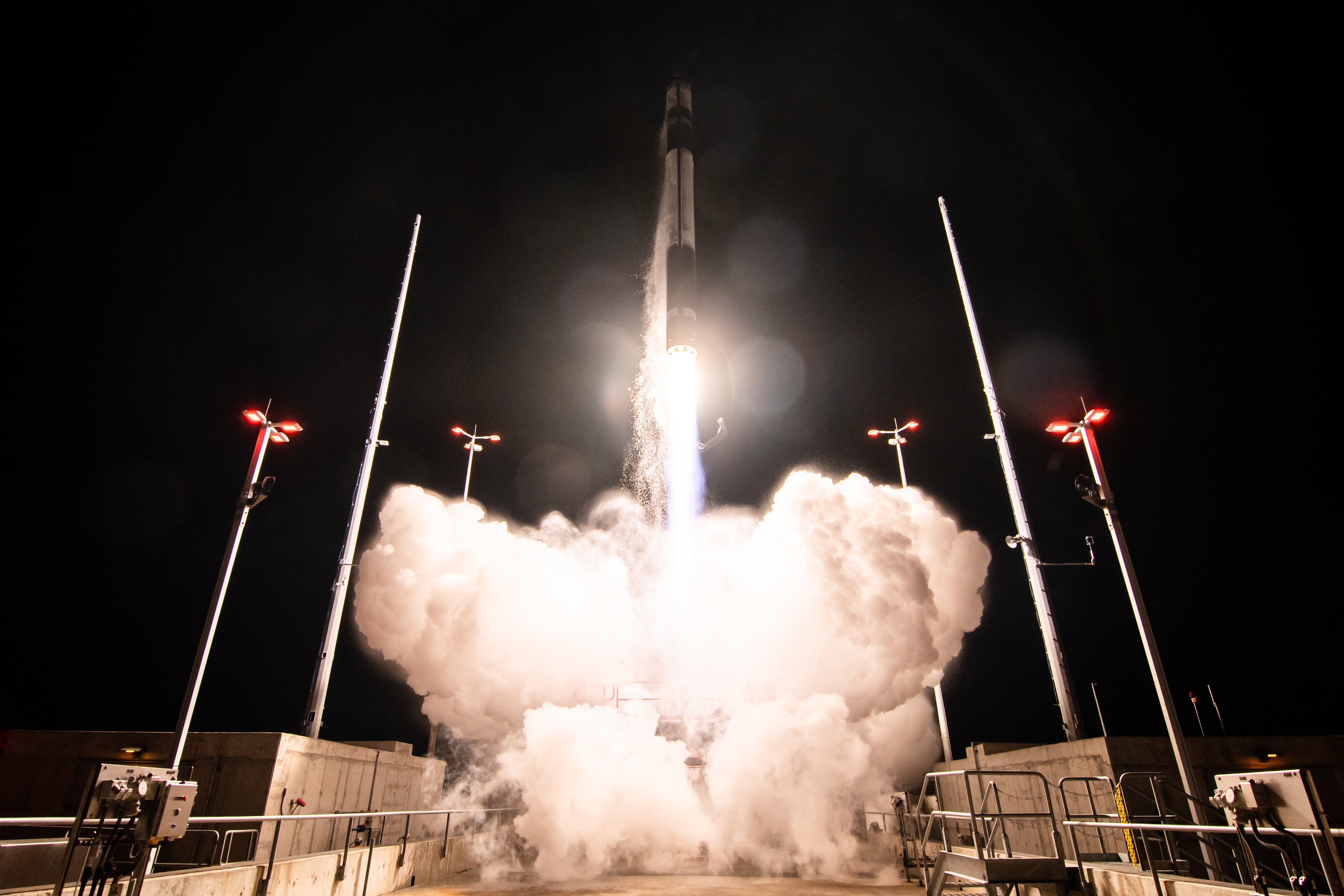The Marine Corps has created a cyberspace career track that will focus on enhancing the service’s ability to compete on the information battlefield, the Marine Corps announced March 1.
The creation of a cyberspace military occupational specialty is part of an ongoing modernization effort by the Marines to peruse a multi-domain approach to warfare.
“The Cyberspace Occupational Field provides the Marine Corps with a professionalized, highly skilled workforce that can effectively employ cyberspace defenses, capabilities, and effects across the Marine Air Ground Task Force and support joint requirements,” the service said in a release.
The Marines Corps will employ both offensive and defensive cyber officers as well as general cyberspace operators charged with “supervising and directing” cyberspace capabilities, according to an announcement. The program will enlist approximately 1,100 total Marines, said Capt. Amanda Anderson of the Marine Corps Forces Cyberspace Command.
“We spend so much time training these Marines, and they enjoy so much what they do in this cyberspace domain, that we need to build a cyberspace MOS so that we can retain them on the teams, keep the experience that we’re gaining, and continue to get better,” Maj. Gen. Lori Reynolds, commander of Marine Corps Forces Cyberspace Command told C4ISRNET in May 2017.
The announcement of the cyberspace occupational field first came from Gen. Robert B. Neller on Twitter.
“‘Trigger fingers turn to Twitter fingers’? Not exactly, but this is the next step in professionalizing our cyber force, which will be critical to our success, now and in the future,” Gen. Neller tweeted Thursday.
Along with a cyberspace workforce, the new occupational field incorporates a “standardized training continuum” designed to retain and train qualified Marines in the cyberspace field.
At the West 2018 conference in San Diego last month, Neller said retaining cyber workers was a top priority.
“We’re at the point now, if you make it through all the wickets, and you become a cyber Marine, if you will, and you’re qualified to do mission protection or attack or cyber mission force stuff, you’re not leaving,” he said.
“You’re going to be like [special operations command]. You’re in, you’re doing special missions, you’re done. Because it just doesn’t sense from a business case to invest two years to do something else … We can’t afford to keep these people. The only thing we can do is ‘I’m going to leave them alone and let them do their job.’”







